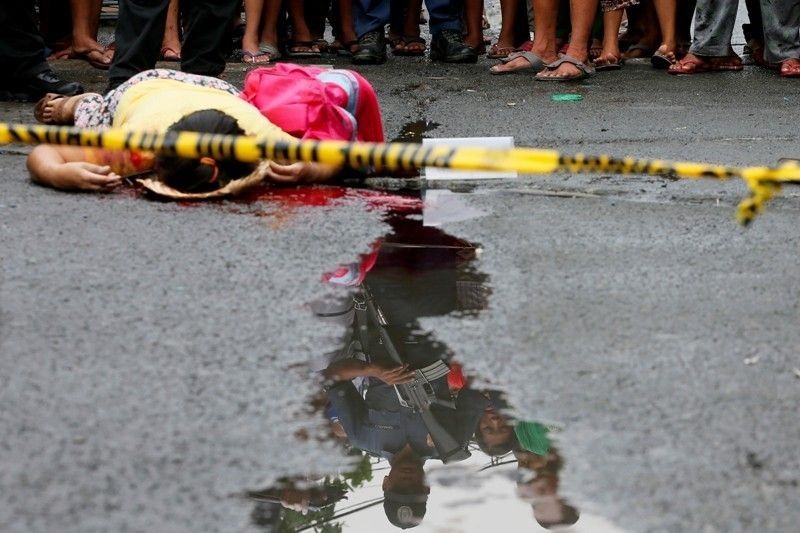State Department report: EJKs still 'chief' human rights concern in Philippines

MANILA, Philippines — The alleged cases of summary execution in President Rodrigo Duterte’s bloody drug war remain the top human rights concern in the Philippines, amid rising impunity following a dramatic surge in police killings, the US State Department said in its global rights report for 2017.
“Extrajudicial killings have been the chief human rights concern in the country for many years and, after a sharp rise with the onset of the antidrug campaign in 2016, they continued in 2017,” read the report released Friday (Washington time).
Duterte, who is notorious for his defiance of international pressure and rejection of criticisms on his rights record, easily won the race to Malacañang on a brutal law and order platform.
Human rights monitors say most of the fatalities in the government’s anti-narcotic drive are extrajudicial killings committed by cops taking a frontline role in the lethal campaign and unknown assailants.
But the force had vehemently denied executing suspected drug traffickers in cold blood, saying deaths in police shootings were done in self-defense.
Amid the mounting death toll, critics say Duterte is waging a “war on poor,” making him liable for crimes against humanity for giving cops the "license to kill."
Citing the 900 drug-related deaths reported by media from January to September last year, the State Department said concerns about police impunity “increased significantly.”
The US government also expressed doubt over the accuracy and legitimacy of Duterte’s list of alleged drug personalities.
“Police claimed to have begun investigations of all reports of extrajudicial killings,” the report read in part.
“Some civil society organizations accused police of planting evidence, tampering with crime scenes, unlawfully disposing of the bodies of drug suspects, and other actions to cover up extrajudicial killings,” it added.
Aside from the drug war, the report likewise flagged other “most significant” human rights issues in the country, including life threatening prison conditions, warrantless arrests, the state’s “disregard” for due process, violence against the free press and rights activists, and forced labor, among others.
Duterte-Trump
The report’s release comes at a time of improving Manila-Washington ties, as US President Donald Trump cozies up to Duterte, whom the American leader said was doing an "unbelievable job on the drug problem."
In a departure from previous policy of past American leaders to call out human rights violators, Trump had also reportedly said that “Filipinos don’t have drug problem [because] they just kill them.”
Asked how the State Department report is consistent with the human rights policies of Trump—who has been criticized for his apparent affinity for leaders accused of being authoritarian like Duterte—senior State Department official Michael Kozak maintained that the report is “factual.”
“Now, does that mean that the President should never speak to these people? We’re trying to keep the report as the factual baseline for what we’re going to do in policy terms or sanctions as the secretary was mentioning. So we can learn a lot from this, and we can use it to formulate a policy,” Kozak, who helped oversee the report, said in a press conference.
“But usually part of your policy is engaging with the people whose behavior you’re trying to change at some level. And I don’t think those two things are in distinction,” he added.
“The fact is, these other governments and their populations do read the report... And when the President speaks to their leader, often he’s talking about these issues, so it’s – it’s complementary, it’s not a – two things that are in conflict.”
- Latest
- Trending
































